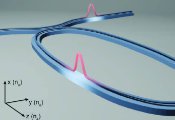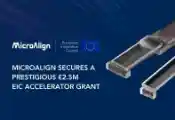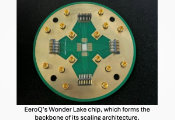Quantum Catalyst Funding Announced for Cerca, Monirail and Delta G
Three spin-out companies set up by UK Quantum Technology Hub Sensors and Timing researchers received Quantum Catalyst funding, as announced by the Department for Science, Innovation and Technology (DSIT) on 5 February 2024.
As part of its commitment to create a quantum-enabled economy by 2033, DSIT announced a £45 million investment in the UK’s quantum sector. As part of this funding, the Quantum Catalyst Fund – worth £15 million, and funded and delivered by DSIT and Innovate UK – was set up to fast-track the integration of quantum solutions in the public sector, and strategically position the UK Government to leverage the diverse advantages of quantum technologies across different policy areas.
In the first round of feasibility studies under the Quantum Catalyst fund, 30 projects explored how quantum technology can provide new capabilities in public services, such as quantum-enabled brain imaging in healthcare to tackle epilepsy, concussion, and dementia, or quantum computing that can solve optimisation problems in energy grids, helping us to reach net zero.
In the announcement, Delta g, Cerca and Monirail – alongside three other companies – were announced as winners of the competition. The companies will now receive funding from the Small Business Research Initiative fund (SBRI) to build physical prototypes for their sponsoring government agency/department. SBRI offers organisations the opportunity to work directly with the public sector to develop new technologies and processes, helping to meet efficiency targets and improving public services. It supports the research and development of solutions to solve public sector challenges.
This funding will accelerate the development of Cerca’s high-tech quantum-enabled brain scanner which aims to improve the diagnosis of disorders such as epilepsy and dementia. Monirail aims to further develop a smart navigation system for trains, using quantum sensors to save costs and enhance safety in tunnels. Scientists at Delta g will use gravity gradient sensor technology to develop a semi-autonomous system capable of scanning our cities and infrastructure, to spot emerging hazards before they arise.




































